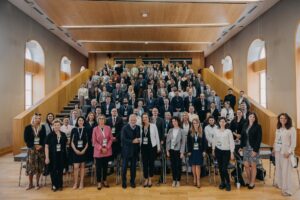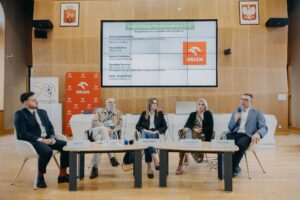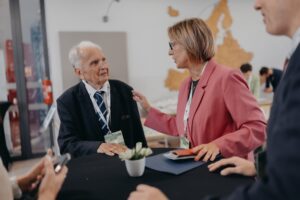29th Annual Conference of the Central European Political Science Association (CEPSA) at the Faculty of Political Science and International Studies University of Warsaw

Why are young voters increasingly voting for far-right parties? Invitation to a special elective course
September 16, 2025
Recruitment to foreign study tour for students
September 24, 2025
On 18–19 September 2025, the Faculty of Political Science and International Studies at the University of Warsaw hosted the 29th Annual Conference of the Central European Political Science Association (CEPSA) under the theme “Politicisation and Post-politics in Times of New Challenges.”


The event, co-organised by CEPSA and the Faculty, brought together several hundred scholars and experts from Europe, Asia and the Americas, making it one of the most important international gatherings of the political science community in the region.
The opening ceremony was attended by Prof. Alojzy Z. Nowak, Rector of the University of Warsaw, Prof. Katarzyna Kołodziejczyk, Dean of the Faculty, Prof. Boglárka Koller, President of CEPSA, and Prof. Jacek Wojnicki, Head of the Local Organizing Committee. The keynote lecture was delivered by Aleksander Kwaśniewski, former President of the Republic of Poland, who outlined the most significant political transformations in Europe over the past three decades.


The programme featured numerous panels and thematic sessions focusing on foreign policy in Central Europe, energy transition and climate change, security and hybrid threats, the condition of political parties, the role of women in politics and wartime, local and digital democracy, as well as the rise of Euroscepticism.

Highlights of the conference also included a discussion on the future of the Three Seas Initiative, a panel on de-democratization processes, and a Jean Monnet roundtable with leading scholars of European integration.

The conference concluded with a debate on the history and future of CEPSA featuring Prof. Jerzy J. Wiatr, co-founder of the Association and Prof. Boglárka Koller, current president of the organization.
With its rich programme and the participation of an international community of scholars, the 29th Annual CEPSA Conference provided a unique opportunity to exchange knowledge, experiences and reflections on the contemporary challenges facing political science.

Next year’s 30th anniversary edition of the conference will be held in Florence.





